10 Examples of Jesus Ministering to People over Meals
Bible Study
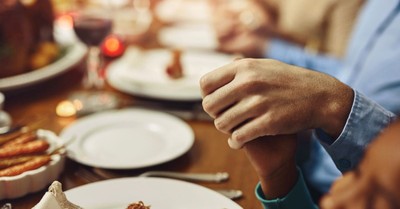

Audio By Carbonatix
By Barbara Latta, Crosswalk.com
When humans gather, food is usually involved. We celebrate our holidays, birthdays, anniversaries, graduations, and other important events in our lives with loved ones and friends over a meal.
Churches host potluck dinners. Families travel for miles to be together for long overdue visits and share memories over a feast. We can think of wedding rehearsal dinners, catered corporate events, and food trucks at city festivals.
We even have TV networks devoted wholly to eating.
The Bible gives us many occasions where Jesus ministered to people through meal invitations or a plate of food. Each one presented an opportunity for Him to illustrate the heart of God to those in attendance.
Jewish culture considered the meal table a form of altar. It was a way to bring worship into the home through prayer, giving thanks, and discussion. Because of this, Jesus used dinner as an opportunity to teach. When we sit to eat, we are mostly relaxed and ready to enjoy the bounty before us. While listeners ate, Jesus had their attention because very few want to leave when food is before them.
Here are 10 examples and places of Jesus ministering to people over meals:
Photo Credit: ©GettyImages/Jacob Wackerhausen

1. The Wedding in Cana (John 2:1-11 NIV)
Jesus, His disciples, and His mother attended a wedding in Cana of Galilee. The Son of God had already gathered the twelve who would follow Him in ministry, but He had not performed any miracles yet.
The wine ran out, but rather than panic, Mary, Jesus’ mother, went to her Son with this information. The Messiah turned water into wine and saved a family the embarrassment of not providing for the wedding guests. He showed the care of God to a family that could have been shunned for violating a cultural norm.
But more than that, He revealed His glory and His disciples believed in Him. This miracle during a celebration of a couple’s new life inaugurated the Lord’s ministry.
What Jesus did here in Cana of Galilee was the first of the signs through which he revealed his glory; and his disciples believed in him. (John 2:11)
2. The Calling of Matthew (Matthew 9:9-12)
Matthew (also known as Levi) was a tax collector. Tax collectors were considered traitors to their race and country because they worked to collect for the Romans. They sometimes charged more than what was required and skimmed the excess off for themselves. This activity labeled them as sinners and outcasts.
The Messiah called Matthew to follow Him while Matthew worked at his tax booth. Jesus went to this new follower’s house for dinner and other tax collectors and sinners attended.
Pharisees regarded this association as a violation of the purity of Jewish dietary laws because this new Rabbi associated with sinners. The Messiah used this banquet to turn their accusation into a lesson about the meaning of the law.
On hearing this, Jesus said, “It is not the healthy who need a doctor, but the sick. ‘But go and learn what this means: I desire mercy, not sacrifice.’ For I have not come to call the righteous, but sinners.” (Matthew 9:12)
Not only was Matthew’s life changed, but those in attendance as well. They saw the heart of God instead of harsh rules that condemned them. Matthew’s occupation changed because he left the master of Roman domination and followed a new Master. The doctor called the sick, and the sick became righteous.
Photo Credit: © Unsplash/Caroline Hernandez
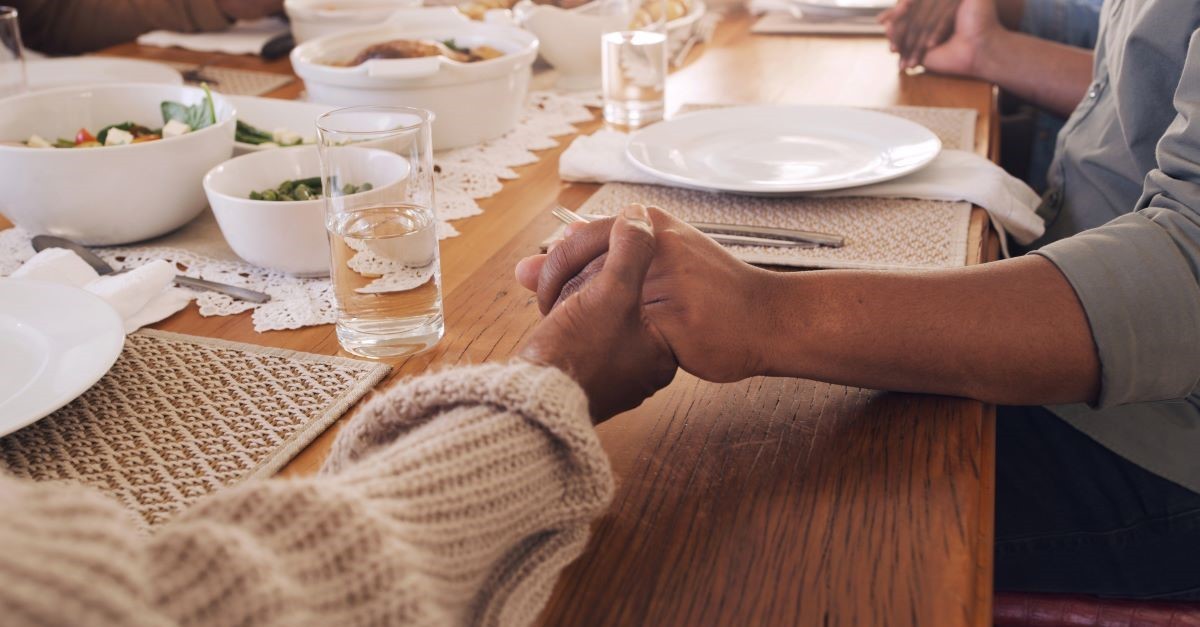
3. The Invitation to Zacchaeus (Luke 19:1-10)
Zacchaeus was another tax collector Jesus encountered. The little man wanted to see the Teacher so badly that he climbed a tree to catch a glimpse of the One he had heard about. The love of God looked into the tree and invited Himself to have dinner at the home of Zacchaeus.
Jesus’ self-invitation showed Zacchaeus acceptance and caused this greedy man to repent of cheating people. He promised to give half his possessions to the poor. We don’t know if Zacchaeus changed his occupation, but if he didn’t, he no longer stole from anyone.
Today salvation has come to this house, because this man, too, is a son of Abraham. For the Son of Man came to seek and to save the lost. (Luke 19:9-10)
4. The Feeding of 5,000 (Mark 6:34-44)
Jesus and his disciples had gone to a solitary place to rest. A large group followed them, and even though the Savior was physically tired, He had compassion on the crowd. At the end of the day, the disciples wanted to send the people away to get food.
Another Messianic miracle turned five loaves of bread and two fish into enough to feed a multitude. The biggest picnic in history also contained leftovers.
The compassion of the Lord Almighty fed hungry seekers the same way He provided manna to the Israelites in the wilderness. His love gave them the provision they needed. There was no table here, but the camaraderie of eating with God displayed how much He cared for their needs.
He had compassion on them, because they were like sheep without a shepherd. (Mark 6:34b)
Photo Credit: ©GettyImages/shapecharge
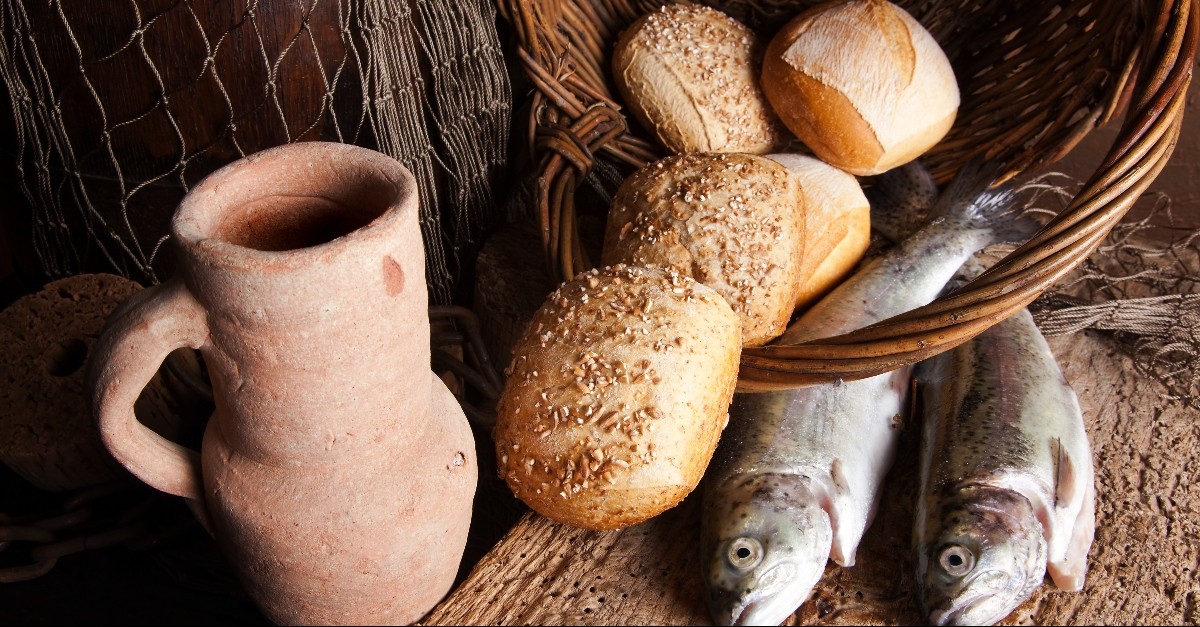
5. The Feeding of 4,000 (Mark 8:1-9)
The Son performed another miracle by expanding bread and fish to feed over 4,000 people. This event happened in the region of Decapolis, which was a Gentile area. This is where Christ had also healed the man who was consumed by a legion of demons. He told the man to go back to his home and family and tell them about his freedom. This may be why so many people from Decapolis flocked to the Miracle Worker.
I have compassion for these people; they have already been with me three days and have nothing to eat. (Mark 8:2)
God’s plan has always been to save the world. This event, where Jesus fed and healed people in a Gentile region, shows us He didn’t leave any part of humanity out of salvation. The Father’s banquet includes us all.
6. The Home of Simon the Pharisee (Luke 7:36-50)
Jesus’ love for people and the Pharisees’ self-righteousness clashed on multiple occasions. When a member of this sect invited Jesus to dinner, it could have been for investigative purposes. Maybe he and others with him wanted to question the new Rabbi as they often did in attempts to trap him. A sinful woman had heard that Jesus was eating at this house. Her actions displayed how much she had received the love the Lord offered.
In this Middle Eastern culture, hospitality dictates offering a kiss upon the arrival of a guest, much like we would hug or shake hands when someone enters our home. They were also given water and olive oil to wash their hands and feet. None of these courtesies was offered to the Son of God upon entering Simon’s house.
The woman poured fragrant oil on Jesus’ feet, washed them with her tears, and wiped them with her hair, thus emphasizing Simon’s neglect. The Messiah used this to point out the hypocrisy of those in the room who criticized the woman’s actions. An unselfish display over a meal refuted a hypocritical Pharisee, and a sinful woman received forgiveness and love.
Therefore, I tell you, her sins have been forgiven—as her great love has shown. But whoever has been forgiven little loves little. (Luke 7:47)
Photo Credit: iStock/Getty Images Plus/Studio-Annika
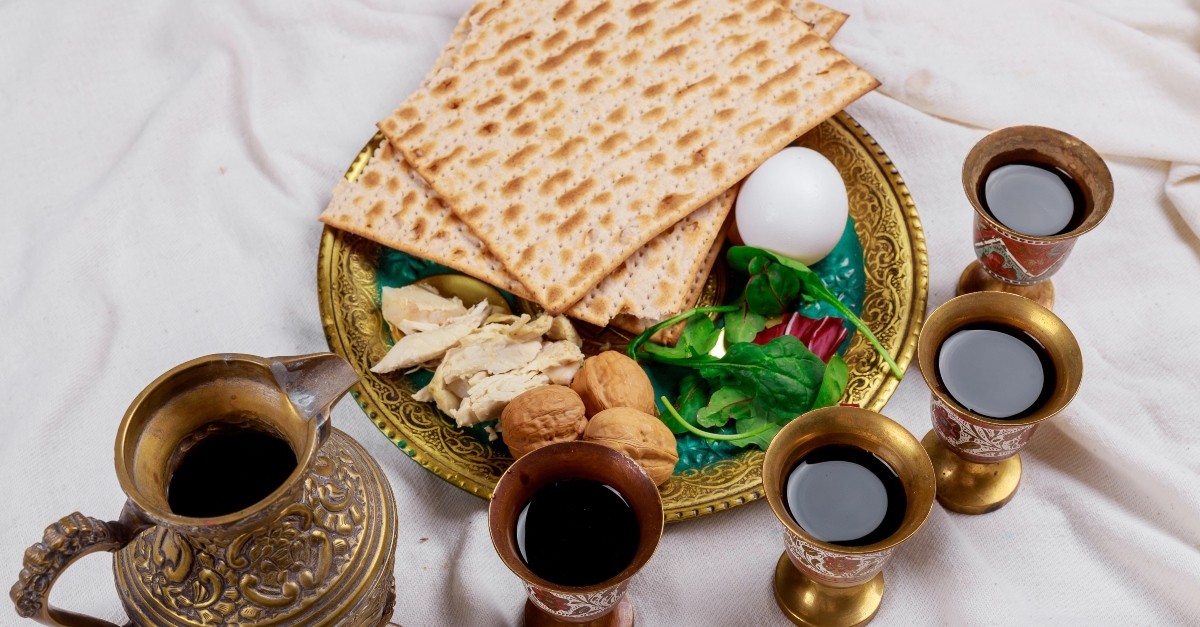
7. The Last Passover (Luke 22:14-24)
The Lord shared with His disciples the Passover meal, the last food He would eat on earth. The Lamb of God would soon be sacrificed as the final payment for the sin of the world. Heavy with this knowledge, Christ still washed the feet of these men who argued over who would be the greatest, one was about to betray Him, and another would deny Him.
The meaning of this table of redemption would not enter their minds until after their Master was raised from the dead. We now honor this ordinance as we take communion, remembering the death and resurrection of the Savior of the world. This celebration of salvation brings us together as believers, but more than that, it represents our reconciliation to the Father.
This is my body given for you; do this in remembrance of me. (Luke 22:19b)
8. The Fish on the Beach (John 21:4-25)
After their beloved Teacher died, the disciples felt helpless, hopeless, and homeless. They didn’t know what to do except go back to what they did before the Master called them. While they fished, a voice from the shore told them to cast their net on the right side of the boat. After a miraculous catch, they realized the voice came from the Lord.
Jesus invited them to a cookout of fish and bread. Christ took this opportunity to reassure the grieving Peter that the denial was forgiven. Jesus commissioned Peter to feed the sheep and lambs of God’s kingdom. This disciple’s renewal forged the faithfulness that stood strong against the persecution that awaited him.
Then he said to him, “Follow me!” (John 21:19b)
Photo Credit: ©Getty Images/photovs
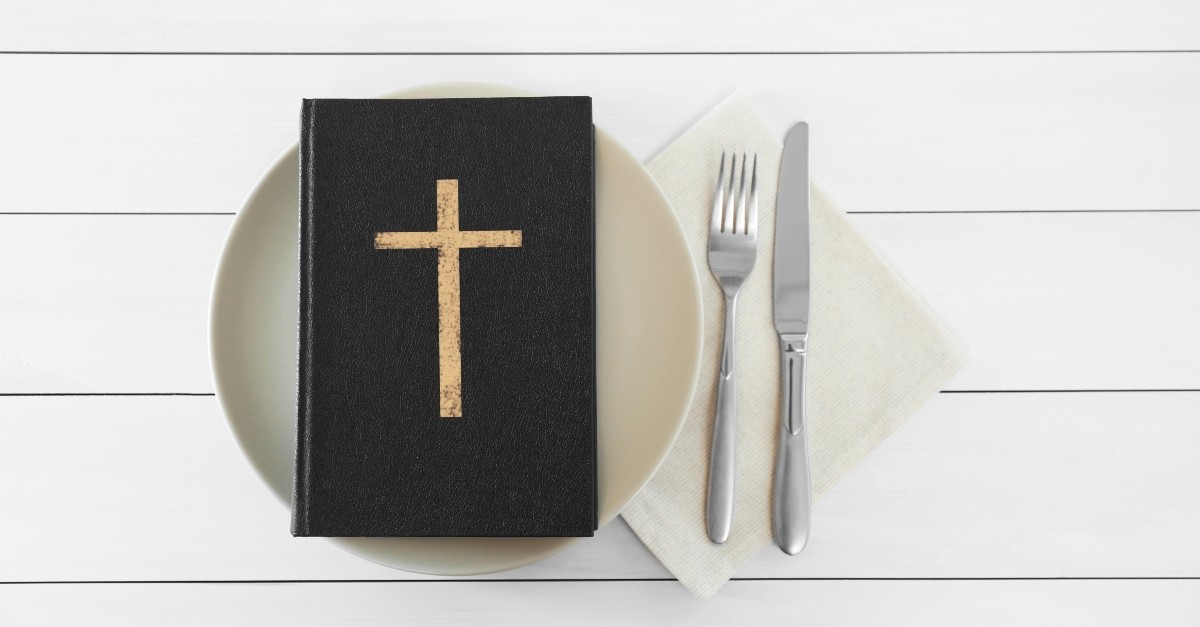
9. The Explanation of Prophecy (Luke 24:13-35)
No matter how many times the Son told His followers about the cross that awaited Him, they still didn’t get it. After Christ’s resurrection, He walked on a road toward Emmaus and met two believers. Their saddened countenance prompted conversation about the recent happenings in Jerusalem. While they walked, the resurrected Christ recounted prophecies about Himself.
The two disciples invited their companion to eat with them because it was getting dark. As their guest broke bread, they realized they had been speaking with the risen Lord. They ran back to Jerusalem and told the other gathered believers that their eyes were opened while Jesus ate with them.
When he was at the table with them, he took bread, gave thanks, broke it and began to give it to them. (Luke 24:30)
10. The Marriage Supper of the Lamb (Revelation 19:9)
The last table for saints of God will be our celebration of redemption and eternity, where we sit and enjoy the Marriage Supper of the Lamb. The culmination of God’s plan for the ages invites us to partake of the Tree of Life. No more hunger, no more pain, no more death—our eternal table connection.
God Speaks Through Fellowship
The Old and New Testaments contain other references to gathering over food. God shows us how sharing over a meal can open our hearts to minister to each other, show love to strangers, and receive acceptance. Tax collectors and sinners repented because they were included in mealtime celebrations.
Whether we partake of feasts or takeout, our tables can transform into altars where God is honored, His bounty is shared, and souls are fed hope and healing.
Jesus was invited to multiple dinners during His ministry, and now we can invite Him to ours. As we engage in celebration with families and friends in the upcoming holiday season, may we reflect on the lessons the Lord gave to guests at meals and remember that all those lessons are for us too. We are forgiven, accepted, loved, and provided for.
Taste and see that the Lord is good; blessed is the one who takes refuge in him. Fear the Lord, you his holy people, for those who fear him lack nothing. (Psalm 34:8-9)
Photo Credit: ©iStock/Getty Images Plus/Liudmila Chernetska

























